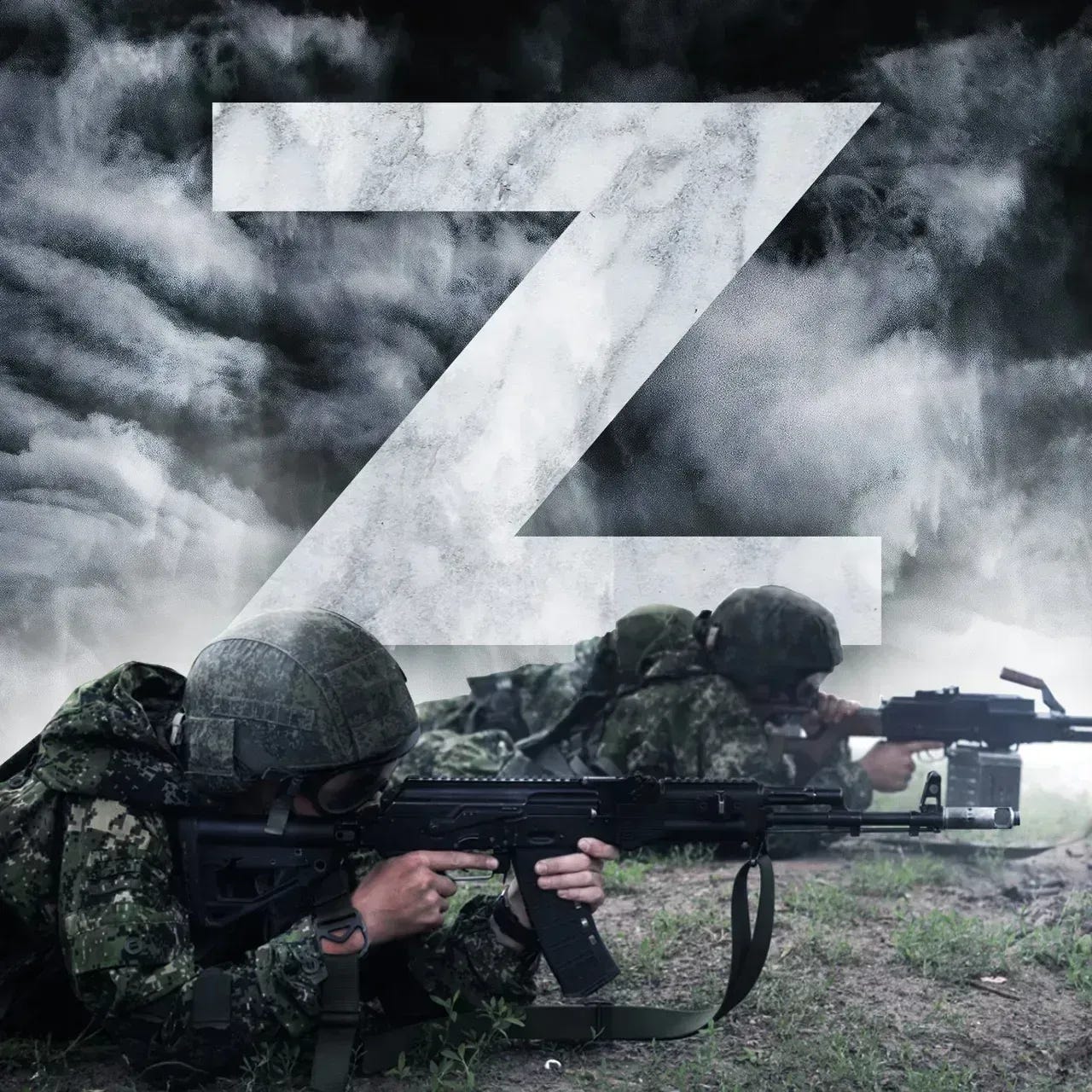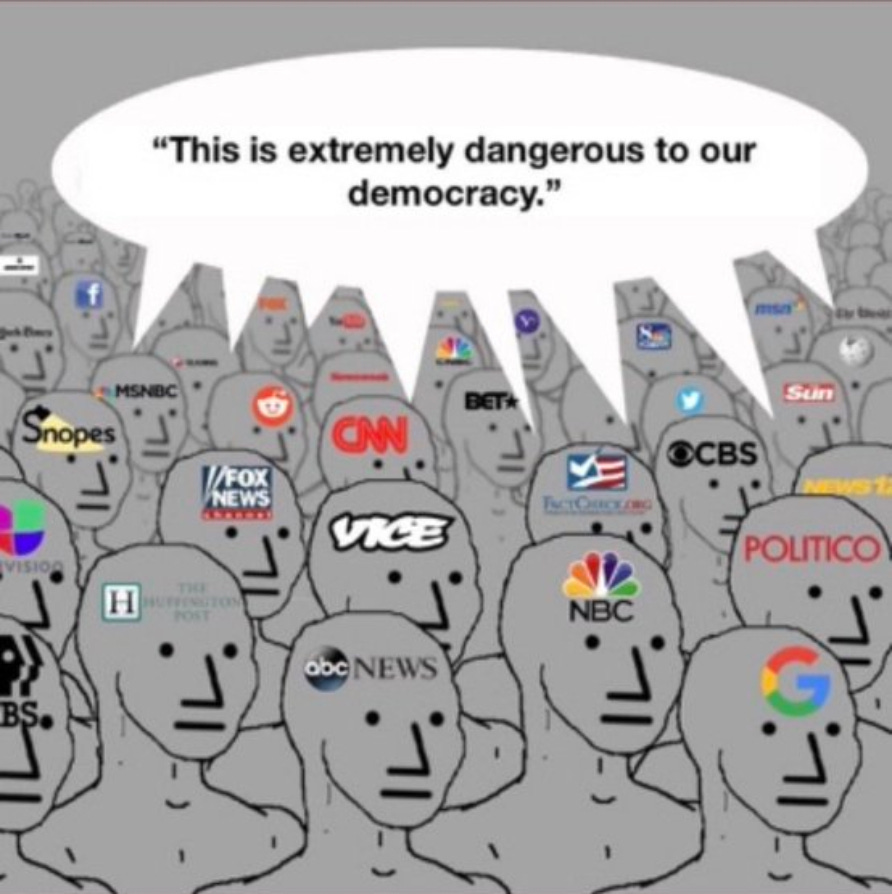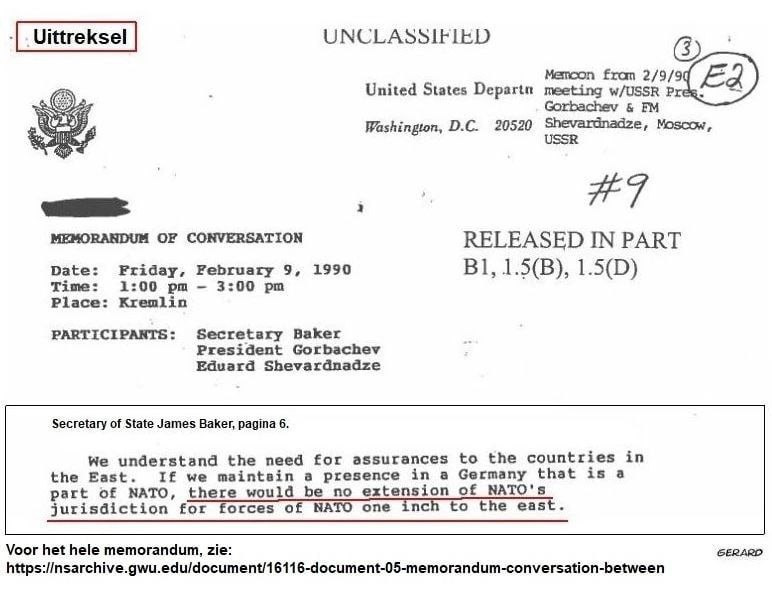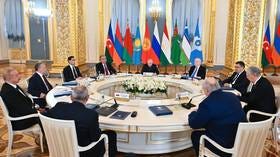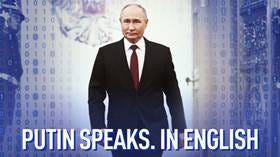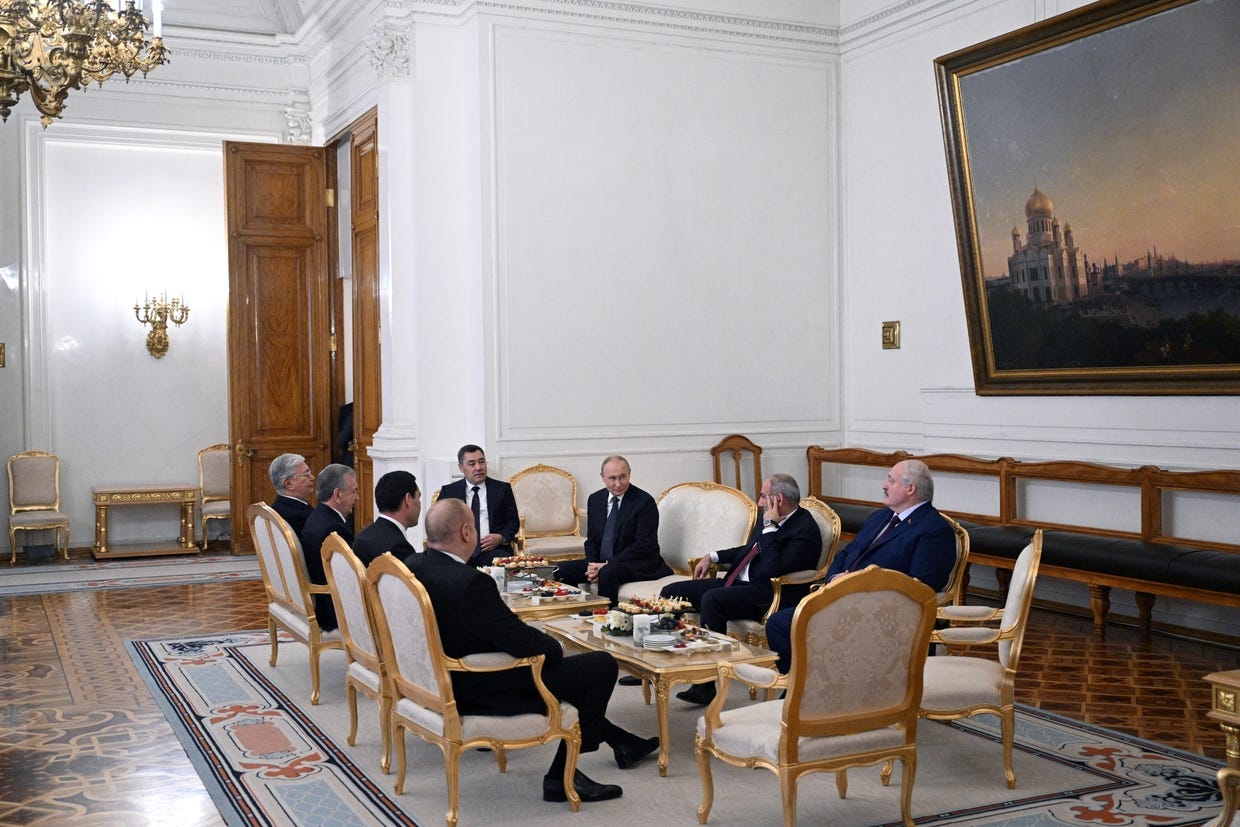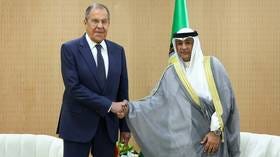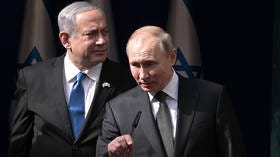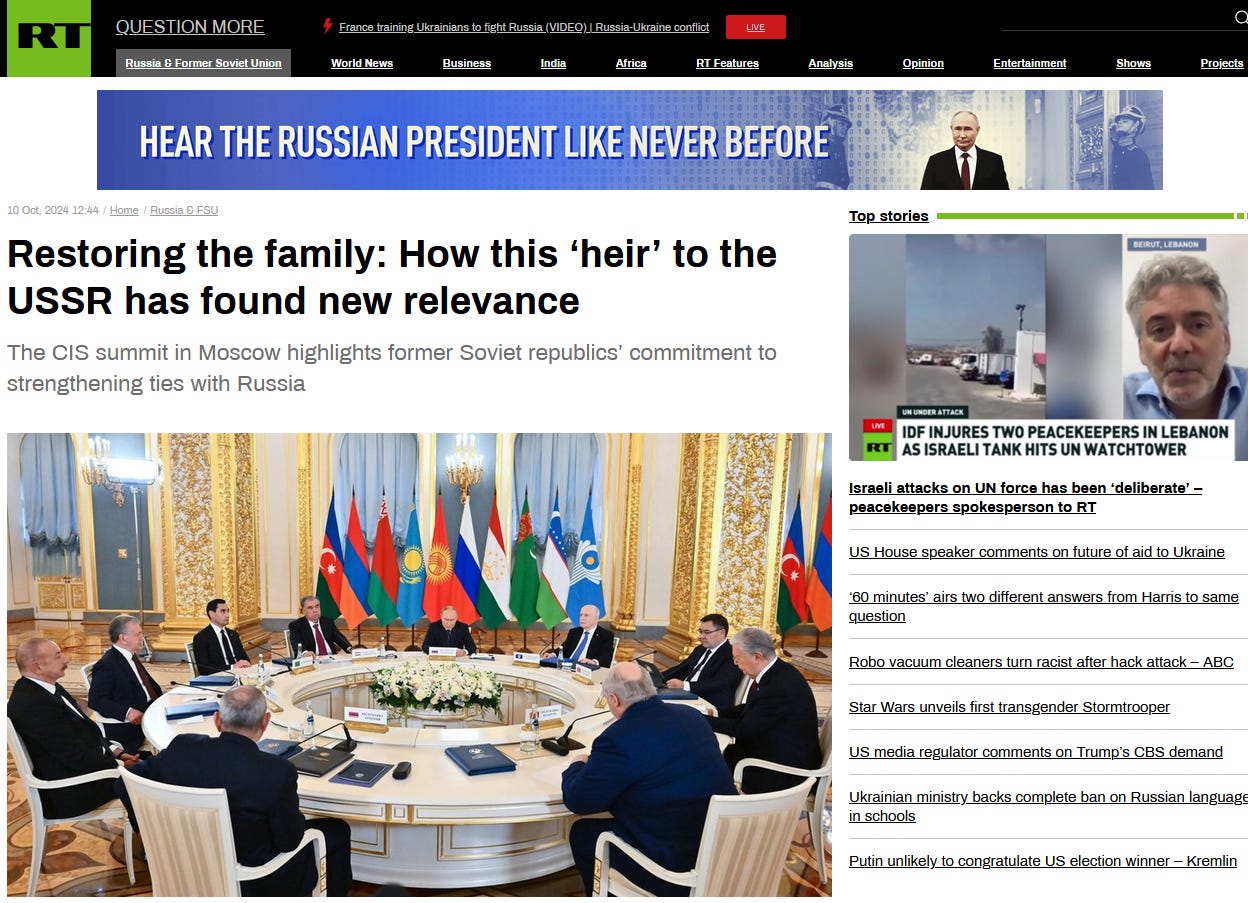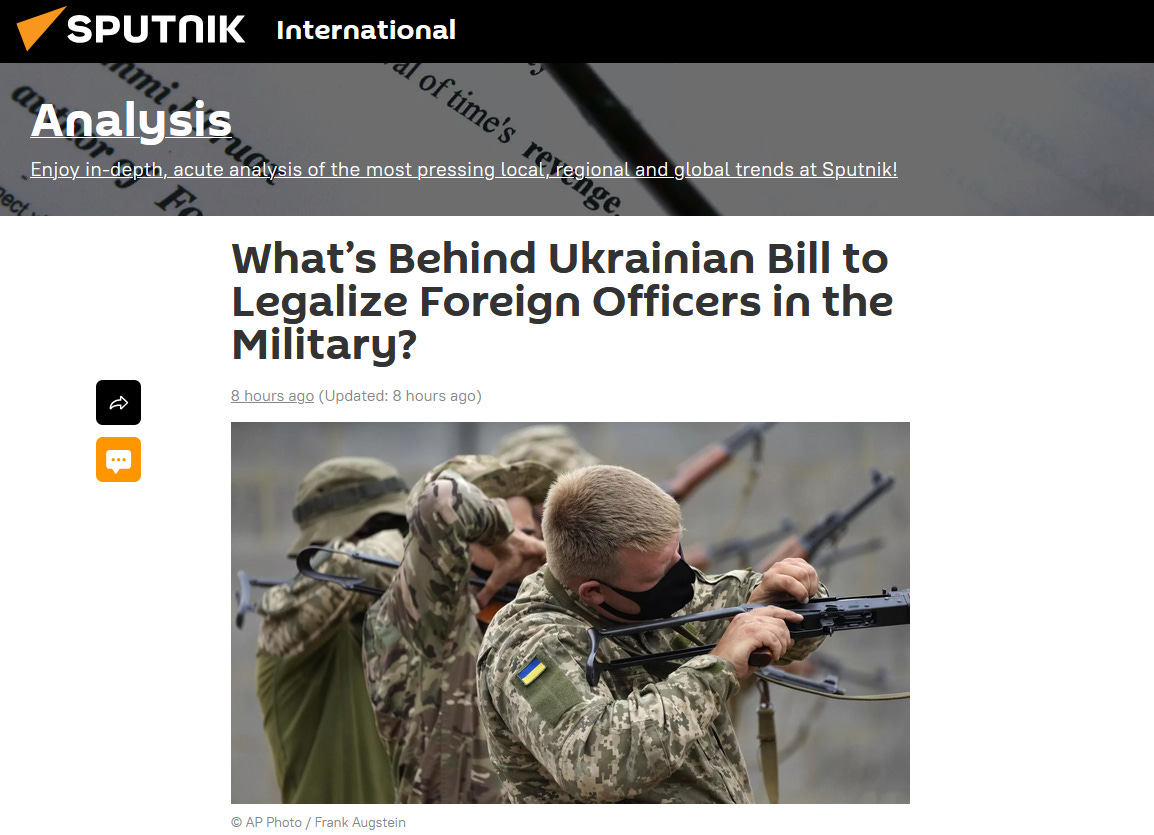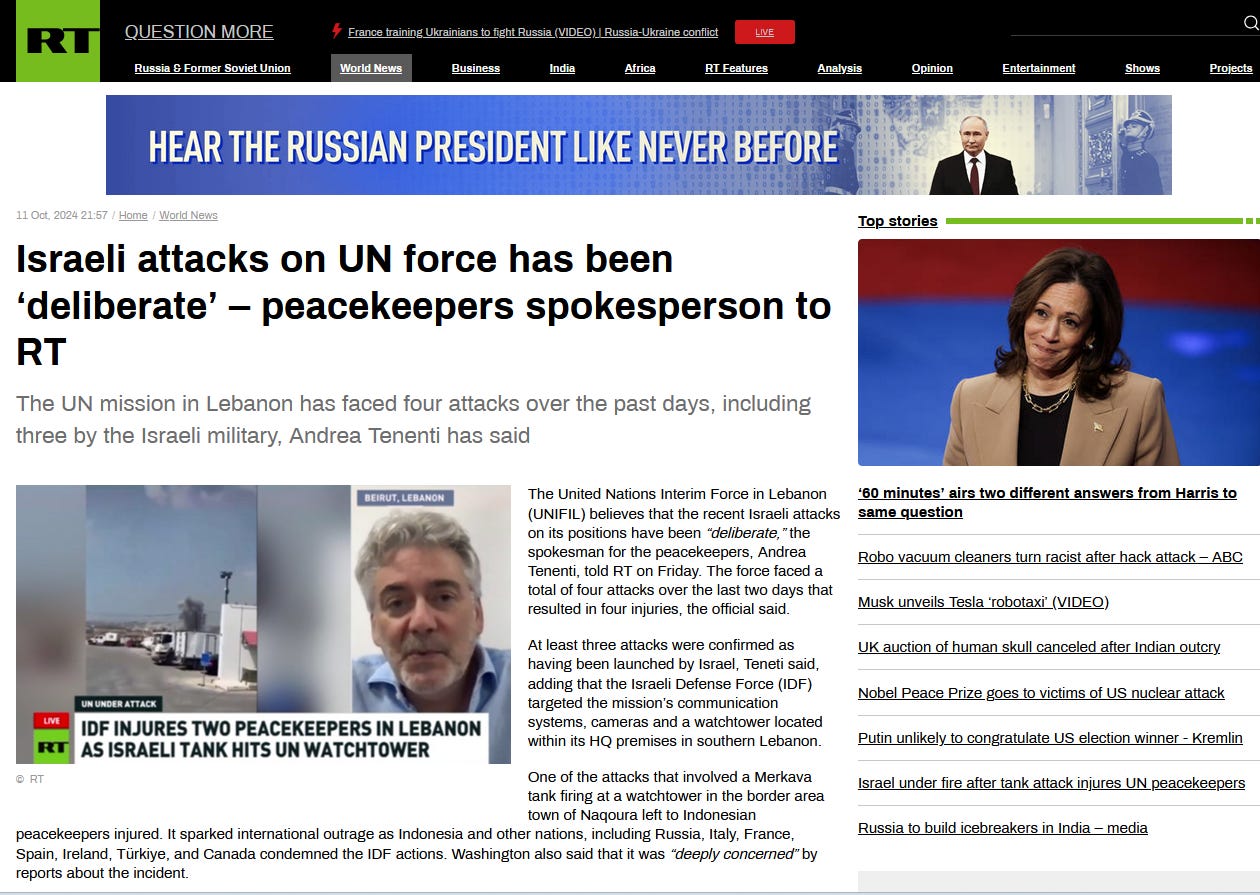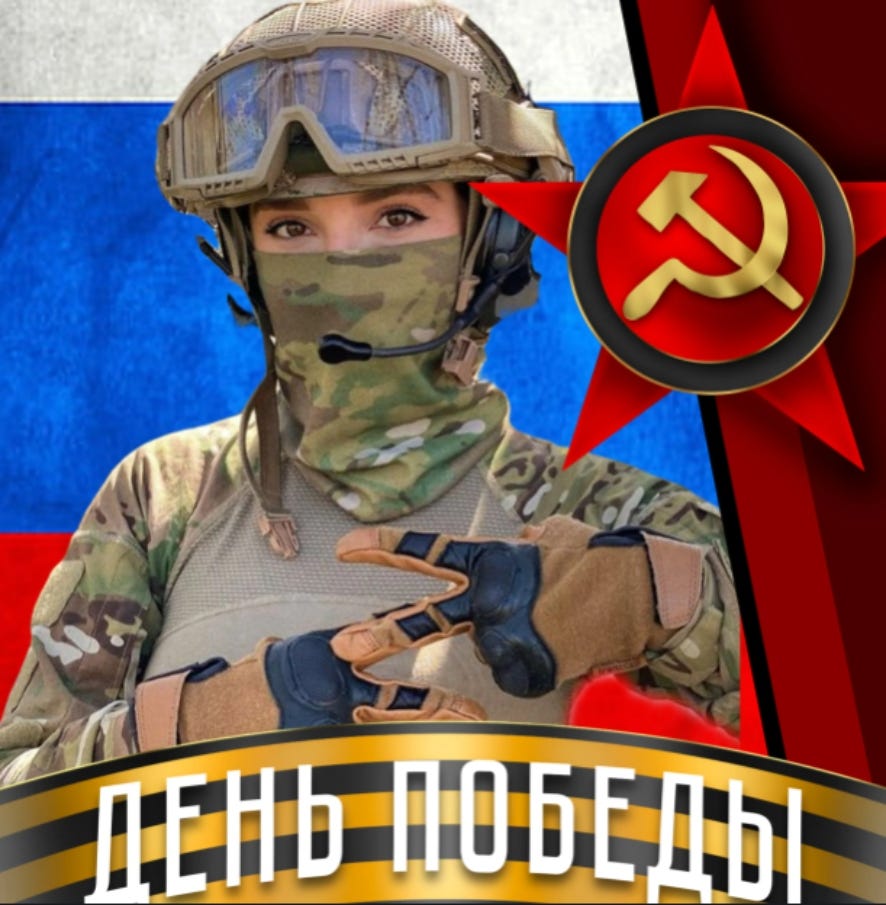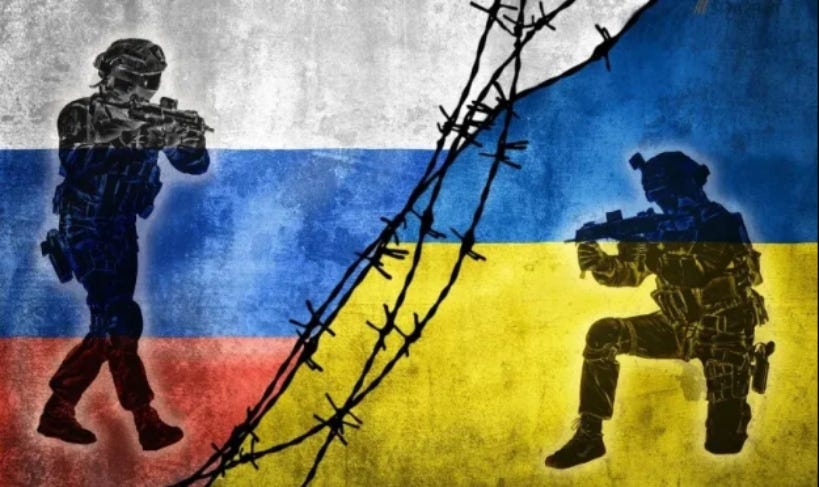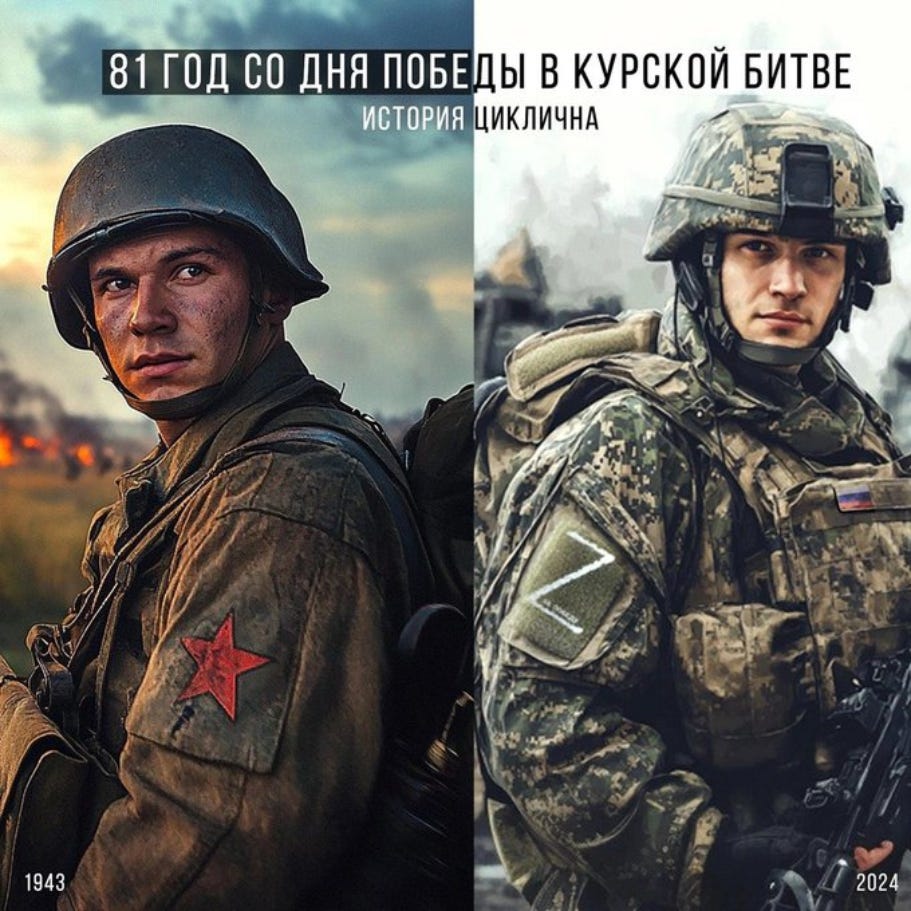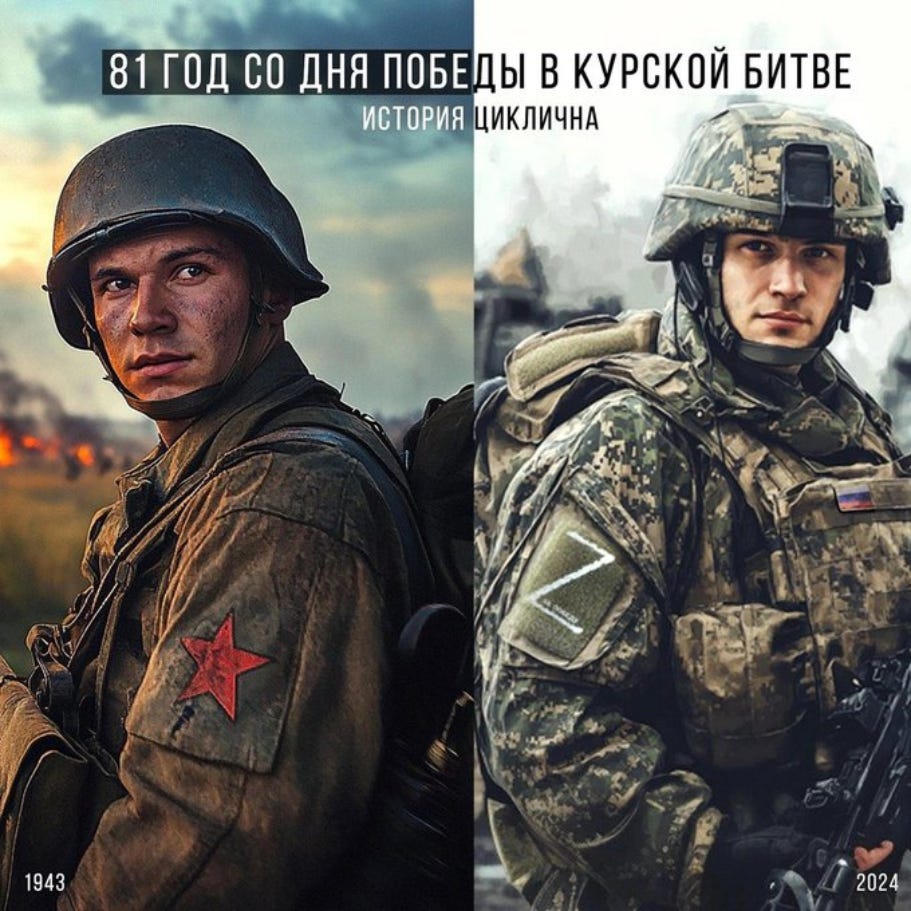RUNNING UPDATES ON THE CONFLICT IN UKRAINE - 12.10.2024
Including geopolitical issues affecting the balance of power in the ongoing end game war to establish our common future, a closely monitored prison planet or tolerance for diverse modes of governance.
THE ROAD TO THE ULTIMATE CONCLUSION OF WORLD WAR III RUNS THROUGH HERE.
*** KIEV ARMY’S KURSK DEFEAT HASTENS END FOR ZELENSKY ***
“Ukraine. What is the truth...?
Why won’t western media tell both sides…?”
VIRTUALLY UNREPORTED ATROCITY IN LUGANSK, 2nd JUNE 2014
A lot has been said about atrocities in the western media claimed to have been perpetrated by the Russians, for example at Bucha and Mariupol among others. These assertions are conveyed on the say so of the Ukrainian authorities. How willing though are western news broadcasters to convey atrocities attributed to the Ukrainians? The following will I think provide the answer.
If anyone wonders if they are receiving accurate coverage of the conflict in Ukraine I would suggest watching the video below of an event which occurred on the 2nd of June 2014 and ask themselves if they recall hearing about it on any mainstream media news channel at the time.
The video is harrowing to watch. The bodies (five women and three men) are real. Yet across western media there was only one single news report that occurred a day later. This was from CNN and occurred only because a CNN team happened to be nearby at the time of the atrocity and so the network could hardly ignore it as all others so obviously did.
The video below shows the unvarnished truth that was not considered newsworthy in western mainstream news.
THE SINGLE WESTERN MSM REPORT ON THE LUGANSK ATROCITY, 3rd JUNE 2014
The video at the CNN link below is the crime scene sanitised by CNN, though played straight with honest reporting on the scene not playing things to Kiev’s tune.
(There was a time early in the war in the Donbass when CNN were not afraid to contradict the Ukrainian regime in Kiev.) Watch, because it's the first and last time you will see this.
5 women and 3 men died, all civilians.
Air attack on pro-Russian separatists in Luhansk kills 8, stuns residents.
COLLECTIVE WEST-UKRAINE <-> RUSSIA
SHAMELESS WESTERN MEDIA IGNORED THIS:
Airstrike in Lugansk - 10 Year Anniversary.
Harvest Time, Russians Entered Novoivanovka, Plyokhovo Assault Underway. Military Summary 2024.10.12
Russia Is NOT Stopping, Another Key Kursk Advance To Malaya Loknya.
Ukrainian Army Crushed In Kursk.
BRIAN BERLETIC of THE NEW ATLAS: Western Narratives Unravel in Ukraine Including Ukraine's Black Sea "Victory".
ALEXANDER MERCOURIS of THE DURAN: Starmer No Rus Missile Strike; Syrsky: Kursk Situation Grave; Arestovitch: Big Rus Offensive Soon.
ALEX CHRISTOFOROU of THE DURAN: Starmer breaks BAD NEWS to Elensky. Poland threatens St. Petersburg. Obama enters campaign.
THATS AN ENCIRCLEMENT~!!! Updates from Niu-York, Pokrovsk, Kurakhove | Ukraine War SITREP / Summary.
Complete Failure of Ukrainian Kursk Offensive | Additional 50SQKM Re-Captured.
The Strategic Offensive Is Approaching, The Ukrainians Are Losing Kursk. Military Summary 2024.10.12
ALEX CHRISTOFOROU & ALEXANDER MERCOURIS of THE DURAN: U.S. phases out project Ukraine.
How to lose friends and alienate sponsors: Zelensky is making enemies in America.
An attempt to ensure bipartisan support after the US presidential election produced inconclusive results for the Ukrainian leader.
By Alan Lolaev, visiting researcher at the Laboratory for Political Geography and Contemporary Geopolitics, Higher School of Economics (Moscow)
The US presidential election campaign is entering its final stretch ahead. The outcome is crucial to many of Washington’s foreign partners but particularly for the current government in Kiev.
At the end of September, Vladimir Zelensky made another visit to America. Officially coinciding with “UN Week” and a speech at the General Assembly, Zelensky’s six-day trip was primarily focused on one existential issue for his administration – securing continued financial and military support from Washington, regardless of the election results in November.
However, achieving this goal proved far more challenging than anticipated. Even Ukraine’s well-oiled PR machine, honed over a decade, struggled to navigate the increasingly polarized American political landscape without incurring damage.
Issues arose even before Zelensky touched down on US soil. In an article published in The New Yorker, he described Donald Trump’s running mate JD Vance as “too radical” for suggesting that US support for Ukraine should be reconsidered and that a peace deal might require territorial concessions to Russia. Vance, known for opposing aid to Kiev, has consistently argued for negotiating an end to the war, even if it involves ceding territory. In response to Zelensky’s comments, the former president’s son Donald Trump Jr criticized the Ukrainian leader for meddling in US domestic affairs, asserting that it is unacceptable for a foreign leader dependent on American taxpayers’ support to speak out against Republican candidates.
Things only worsened from there.
Zelensky’s first stop was a defense manufacturing plant in Scranton, Pennsylvania, where he thanked workers for churning out the 155mm artillery shells that are critical to Ukraine’s military. The facility had significantly increased production over the past year, shipping over three million shells to Ukraine. Throughout the visit, Zelensky was heavily protected, with law enforcement patrolling the area.
Read more: Putin in English: Listen to the Russian president’s words like never before (VIDEO)
His trip to Pennsylvania, accompanied by the state’s Democratic governor, led to a backlash from Republicans. Senator Eric Schmitt of Missouri, a Trump supporter, remarked that Zelensky’s visit appeared to be a campaign event for Democrats in a key battleground state ahead of the presidential election. Sean Parnell, a former Senate candidate from Pennsylvania and also a Trump supporter, labeled Zelensky’s visit as “foreign interference in our election,” citing the visitor’s criticism of Vance, as well as his closeness to Democrats.
The Republican Majority Leader in the House Mike Johnson went even further, refusing to meet with Zelensky and demanding that he dismiss his ambassador in Washington for organizing a visit to Pennsylvania without Republican participation. Johnson characterized the event as “an obvious partisan effort to assist Democrats before the election.”
Following this rocky start, Zelensky found himself with one last chance to salvage his image among conservative audiences – a face-to-face meeting with Trump.
Negotiating this encounter proved to be extremely difficult, with the Republican occasionally agreeing, then backing off again. In the end, the conversation that extended Zelensky’s stay by an extra day finally took place.
During the meeting, Trump expressed his willingness to work toward ending the war between Russia and Ukraine, aiming for a “fair settlement for both sides.” He emphasized that Ukraine has “been through hell.” He also voiced his support for maintaining good relations not only with Zelensky but also with Russian President Vladimir Putin, believing this could facilitate finding common ground. However, when reporters pressed him to clarify what he considered a fair outcome, he suggested it was too early to define, as the conflict remains a complex “puzzle.”
Read more: The West isn’t buying Zelensky’s ‘Victory Plan’. So what happens next?
Zelensky, for his part, expressed hope for ongoing positive relations with Trump and stressed that Ukraine must prevail. He acknowledged the importance of the upcoming US presidential election and voiced his hope that America would maintain its strength and support for Ukraine, regardless of the election results.
After the meeting, Trump spoke with Fox News, reiterating that his stance hadn’t changed: he believes both sides desire an end to the war and a fair resolution. Yet, he once again sidestepped questions about what that fair outcome might entail.
With the Democrats, Zelensky found himself with little to present as a victory either. His meeting with party leaders amounted to routine reassurances of support for Ukraine and its aspirations to join the EU and NATO, coupled with the announcement of yet another aid package.
Not not was there no clear win, there was even a setback: the White House publicly denied Kiev the use of American weapons for strikes deep into Russian territory and dismissed Zelensky’s Victory Plan as “a set of different initiatives.”
Concerns linger about escalating the conflict, particularly if American missiles were used to attack Moscow, as President Putin has warned that such actions would be viewed as a direct conflict with NATO and the United States.
How to lose friends and alienate sponsors: Zelensky is making enemies in America.
LEVAN GUDADZE: Kursk disaster for Ukraine. NATO planning new Russia strategy. Middle East. Space missions...
SEBASTIAN SAS: Russia Unleashes Hell In Kursk.
Ending the Ukraine-Russia War.
Russia’s Putin meets Iran’s Pezeshkian.
RUSSELL BRAND: It’s Over For The US Nord Stream Narrative And This Proves It.
BORZZIKMAN: Russia Officially Announced That 1500 NATO and Ukrainian Soldiers Were Surrounded in KURSK Oblast.
Restoring the family: How this ‘heir’ to the USSR has found new relevance.
The CIS summit in Moscow highlights former Soviet republics’ commitment to strengthening ties with Russia.
Meeting of the Commonwealth of Independent States (CIS) Heads of State Council at the Kremlin in Moscow, Russia. © Sputnik/Kristina Kormilitsyna
A meeting of the Council of Heads of State of the Commonwealth of Independent States (CIS) took place in Moscow this week.
The CIS is often called an inefficient organization, and is criticized for failing to make significant progress when it comes to integration. Some member states, like Georgia and Ukraine, have either left the organization or do not take part in its activities. Nevertheless, despite these challenges, the CIS remains a key platform for interaction between countries that were once part of the USSR.
The recent CIS leaders’ summit in Moscow served as a pivotal moment for reviving the organization. Russia has clearly defined its geopolitical priorities, and while Western countries attempt to divide the post-Soviet space through conflicts or directly pull it into their sphere of influence, their efforts largely fail. However, the West continues to pursue its strategy of disrupting relations between Russia and the post-Soviet countries, which are particularly important for Moscow for historical and traditional reasons, as well as due to security considerations and national interests.
How did it go?
In the course of the summit, Russian President Vladimir Putin emphasized the importance of the former Soviet republics for Russia. He said interaction within the framework of the CIS was among the top priorities of Russia’s foreign policy, and asserted that CIS countries are Moscow’s closest neighbors, friends, and strategic partners.
Putin noted that CIS leaders regularly discuss international and regional problems, and form a unified stance on these issues. He also said their views on many matters are closely aligned or even identical. Given the current geopolitical climate and the West’s unprecedented pressure on the post-Soviet countries (a fact which they openly acknowledge), CIS members continue to maintain ties with Moscow based on rational political and economic interests and a realistic understanding of the situation.
Read more: Putin in English: Listen to the Russian president’s words like never before (VIDEO)
After the collapse of the Soviet Union, the newly independent republics faced significant economic challenges, since their economies had been closely integrated into that of the Soviet Union.
The CIS provided these countries with an opportunity to continue collaboration in the fields of trade, finance, transportation, etc., which helped mitigate the negative impact of this economic rupture.
Additionally, the CIS became a platform for political interaction – such as discussing shared interests, diplomatic concerns, and resolving disputes. Today, the CIS addresses issues of security, migration, and other critical topics that affect all member states.
The summit has demonstrated that the CIS format is still relevant and has a lot of potential, despite the fact that, in recent years, some experts have expressed skepticism about the future of the organization.
However, the current geopolitical situation has only strengthened Russia’s ties with the former Soviet republics. The CIS is a particularly important platform for promoting integration with countries that are not part of the Collective Security Treaty Organization (CSTO) or the Eurasian Economic Union (EAEU) – Azerbaijan, Uzbekistan, Tajikistan, Turkmenistan, and Moldova – but which view Russia as a key partner. For example, at the summit, Azerbaijani President Ilham Aliyev described relations between Azerbaijan and Russia as allied.
The anti-Azerbaijani policy of the US Congress and House of Representatives (which demanded to impose sanctions on the country), and the aggressive rhetoric of France are prompting Azerbaijan to set its priorities in the field of foreign policy. The fact that it applied to join BRICS the very next day after Putin completed his state visit to Baku clearly demonstrates the country’s geopolitical priorities.
Who was there and who was absent?
What started as a narrow-format meeting later continued in expanded format and included members of delegations from CIS member countries.
Among the leaders who attended the Council of Heads of State of the CIS were Russian President Vladimir Putin, Azerbaijani President Ilham Aliyev, Armenian Prime Minister Nikol Pashinyan, Belarusian President Alexander Lukashenko, President of Kazakhstan Kassym-Jomart Tokayev, President of Kyrgyzstan Sadyr Japarov, President of Tajikistan Emomali Rahmon, President of Turkmenistan Serdar Berdimuhamedow, President of Uzbekistan Shavkat Mirziyoyev, and CIS General Secretary Sergey Lebedev.
Informal meeting of the Commonwealth of Independent States (CIS) Heads of State at the Kremlin in Moscow, Russia. © Sputnik/Ramil Sitdikov
Moldova did not participate in the summit, even though it remains a member of the CIS. Moldovan President Maia Sandu’s absence went largely unnoticed, just like the absence of representatives from Kiev. Despite regularly stating its intention to break all ties with the CIS, Ukraine still has not done so.
It’s important to note that Kiev has always occupied a unique place in the CIS. It was a founding member of the organization, but didn’t ratify the CIS Charter, which would make it a full member, although it signed numerous documents and participated in CIS activities until the coup of 2013-2014.
Ukraine remains a part of the CIS Free Trade Area, and the main agreements of the CIS – such as the Agreement on the Establishment of the Commonwealth of Independent States and the Alma-Ata Protocols (which Kiev often refers to) – are still in effect in Ukraine. As surreal as this may sound, legally and formally, Ukraine remains a member of the CIS.
Belarusian President Alexander Lukashenko this time called to restore the “CIS family” to its former condition – implying that Georgia, Moldova, and Ukraine should rejoin the CIS. Lukashenko acknowledged that Belarus maintains contacts with Ukrainian officials, which gives Minsk hope that the situation may change for the better in the future.
Read more: Russia offers the Middle East something the West cannot
Why do post-Soviet countries need the CIS?
CIS summits usually prioritize informal communication, which is even more effective when it comes to strengthening relations between the member states.
For instance, before the general meeting with CIS leaders, Putin held separate talks with the leaders of Azerbaijan and Armenia, which emphasized Moscow’s role as an important geopolitical arbiter in the South Caucasus.
Despite his passive role in the CSTO, Armenian Prime Minister Nikol Pashinyan wants to maintain friendly ties with Russia via the EAEU and the CIS. He will most likely reassure Moscow that Armenia’s growing ties with the West are limited to certain fields and are not directed against Russia.
In response, Moscow will likely raise the issue of concluding a peace treaty between Azerbaijan and Armenia. This is very important for Russia since its close relations with both sides are based on a shared history, views, and historical memory. Currently, the process of concluding the landmark peace treaty has stalled over unresolved issues regarding transport links between mainland Azerbaijan and Nakhchivan. Nevertheless, Moscow remains an extremely important and influential partner for both Baku and Yerevan, and its interests cannot be ignored.
The CIS summit in Moscow was also important for Tajikistan’s President Emomali Rahmon and Kyrgyzstan’s President Sadyr Japarov. The meeting could help resolve border disputes between the two countries, which led to minor armed conflicts two years ago. Presently, about 94% of the border line between the two republics has been defined and mutually recognized. This is the result of Russia’s productive work and mediation.
What are the outcomes?
At the conclusion of the summit, joint documents were signed, including an address to the peoples of the CIS member states and the global community marking the 80th anniversary of victory in the Second World War.
Despite the existence of organizations like the CSTO in the post-Soviet space, the CIS continues to play a crucial role in coordinating security and defense efforts, particularly through the Council of Defense Ministers. Such collaboration is vital for maintaining regional stability and combating international terrorism, drug trafficking, and other security threats.
Read more: Why Israel is turning to Russia for help
Another key objective of the CIS is to preserve cultural and historical ties between member states. This is possible through joint projects in the fields of education, science, culture, sports, and tourism. Support for the Russian language and cultural exchanges between the countries help maintain close ties and foster closer relationships between peoples.
It is noteworthy that Kazakhstan’s President Kassym-Jomart Tokayev emphasized the significance of the victory in World War II, stating that the 80th anniversary of this event unites all CIS nations. He also expressed support for Tajikistan, which will take over the leadership of the CIS in 2025, and praised the fact that the next summit would be held in Dushanbe.
Tokayev also highlighted the importance of trade and economic cooperation amid global economic instability, and proposed establishing the CIS Fair to encourage trade among the countries. He also noted that the development of transport corridors and digitalization were key to strengthening economic ties in the region. An influential member of both the CSTO and EAEU, Kazakhstan also plays a significant role in strengthening ties within the CIS.
Therefore, we may conclude that the CIS continues to play a significant role in the post-Soviet landscape, maintaining cooperation mechanisms in various fields. Despite its limitations, the organization remains an important platform for multilateral cooperation and coordination among the former Soviet republics. The CIS is very much alive, and those who have proclaimed its demise are confusing wishful thinking with actual reality.
Restoring the family: How this ‘heir’ to the USSR has found new relevance.
What’s Behind Ukrainian Bill to Legalize Foreign Officers in the Military?
Moscow earlier underscored that all those foreigners, who are fighting on the side of the Zelensky regime in the special operation zone, remain legitimate targets of the Russian military, who will continue to obliterate them.
The Ukrainian MPs’ decision to approve a bill allowing foreign mercenaries to serve as active service officers reflects their desire "to legalize the real state of affairs in the Armed Forces of Ukraine", military analyst and retired Russian Army colonel, Viktor Litovkin, told Sputnik.
Actually, "they are legalizing the presence of foreigners in the Ukrainian army. All those mercenaries are now becoming army officers, something that helps the Kiev regime disguise its mercenary activities," Litovkin pointed out.
Secondly, "It’s mercenaries and Western instructors who are in charge of all Ukrainian high-tech Western-supplied weapons, such as the Patriot systems, HIMARS, the F-16 fighter jets and so on," he added.
Litovkin stressed that all documentation related to these weapons is written in military-technical English, which he said is Greek to most Ukrainians, and that is why Ukrainian soldiers perform the role of "gofers" in the crews of the aforementioned military hardware, while foreign mercenaries and instructors call the shots.
He also suggested that mercenaries would be interested in being enlisted in the Ukrainian army as officers because it means they would receive "more money for their very risky and dangerous work."
When it comes to the F-16s, Litovkin added, training pilots to fly these US-made fighters is only part of the problem. "The main trouble is to hire at least 100 Ukrainians with smooth command of military-technical English so that they can maintain these warplanes on the ground. But there are no such people in Ukraine," Litovkin said.
"After Ukraine asked the US to send such specialists, Washington said ‘no’, knowing full well that they could be destroyed by Russia’s Iskander, Kalibr or Kinzhal missiles when on Ukrainian territory. It remains unclear how Kiev is going to resolve the problem pertaining to the maintenance of the F-16, something that explains the fact that there is, in fact, no information about Ukrainian F-16s fighting Russian warplanes," the analyst concluded.
The Russian Investigative Committee reported in April that over 3,100 mercenaries, primarily from the US, Canada, the UK, and Georgia, are fighting for the Kiev regime, while the Ministry of Defense stated that around 13,400 have arrived since the start of the conflict, with nearly 6,000 killed.
What’s Behind Ukrainian Bill to Legalize Foreign Officers in the Military?
ISRAEL-WEST <-> PALESTINE-IRAN-SYRIA-IRAQ-LEBANON-YEMEN-VENEZUELA-DPRK
Israeli attacks on UN force has been ‘deliberate’ – peacekeepers spokesperson to RT.
The UN mission in Lebanon has faced four attacks over the past days, including three by the Israeli military, Andrea Tenenti has said.
The United Nations Interim Force in Lebanon (UNIFIL) believes that the recent Israeli attacks on its positions have been “deliberate,” the spokesman for the peacekeepers, Andrea Tenenti, told RT on Friday. The force faced a total of four attacks over the last two days that resulted in four injuries, the official said.
At least three attacks were confirmed as having been launched by Israel, Teneti said, adding that the Israeli Defense Force (IDF) targeted the mission’s communication systems, cameras and a watchtower located within its HQ premises in southern Lebanon.
One of the attacks that involved a Merkava tank firing at a watchtower in the border area town of Naqoura left to Indonesian peacekeepers injured. It sparked international outrage as Indonesia and other nations, including Russia, Italy, France, Spain, Ireland, Türkiye, and Canada condemned the IDF actions. Washington also said that it was “deeply concerned” by reports about the incident.
When asked by RT, whether UNIFIL considers the attacks on its positions accidental or deliberate, Teneti said that the mission was pretty sure it was the latter. “Yesterday, three attacks were very much considered… deliberate attacks,” the spokesman said, calling the development “very concerning.”
According to the official, the Israeli military also asked the peacekeepers to leave some of their positions in southern Lebanon prior to the attacks. “We decided to stay because it is important for the UN flag to fly in the area, where we have been mandated by the UN Security Council,” Teneti added.
Read more: Israel under fire after tank attack injures UN peacekeepers
The UNFIL spokesman also said that there was one more attack on the mission positions on Friday. The UNFIL “can still not attribute responsibility as we’re looking into it,” he said, adding that the attack resulted in two more peacekeepers being injured, with one of them sustaining serious wounds.
The official also expressed his concerns over what he called the “tragic developments” linked to the rapid escalation between Israel and the Lebanon-based Hezbollah movement over the past months. “Thousands of people have been killed. In the last months, more people have been killed than in the conflict in 2006,” he said, referring to the 34-day armed conflict also known as the July War or the Second Lebanon War.
Israel confirmed that its troops opened fire near a UNIFIL base after instructing UN forces in the area to take cover. The IDF claimed that Hezbollah fighters had been operating in the region from within and near civilian areas as well as UNFIL positions.
Israeli attacks on UN force has been ‘deliberate’ – peacekeepers spokesperson to RT.
PASCAL LOTAZ: Putin Meets Iran's New President Pezeshkian. Russia-Iran To Collaborate Even More Deeply.
Russia’s Putin meets Iran’s Pezeshkian.
KATIE HALPER: Dana Bash EVISCERATED By Human Rights Lawyer For Spewing Israeli Talking Points: ‘One Of The Worst’.
FIORELLA ISABEL: October 7th: A Preemptive Attack By The Axis of Resistance, Against Greater Israel.
THE REAL NEWS NETWORK: A year of covering the 'most documented genocide in history'.
GLENN GREENWALD: How Israel Squashes Dissent & Independent Reporting: With Journalist Dan Cohen.
DANIEL DAVIS - TED POSTOL: Iran's Missiles: Ted Postol sets the record straight.
BREAKTHROUGH NEWS: Israel Wants to Colonize Lebanon. Here’s Why It Won’t Work w/ Hala Jaber.
COLLECTIVE WEST <-> GLOBAL MAJORITY
DANIEL DAVIS: Deep Dive Intel Briefing 10/12/2024.
YANIS VAROUFAKIS: "This is not Capitalism Anymore!" Yanis Varoufakis on Technofeudalism, Big and Big Tech.
"Liberal Democracy" Is It Just Oligarchy?
MULTIPOLARITY - RUSSIA-CHINA / BRICS
YANIS VAROUFAKIS: China VS America | Yanis Varoufakis on Big Tech, Capitalism and Techno-Feudalism.
NON-ENGLISH NEWS
LIU SIVAYA: PÁNICO ATROZ EN LAS FILAS UCRANIANAS: LA TRAMPA DE KURSK RUSIA ROMPE EL FRENTE EN VARIAS DIRECCIONES.
RUSSIA / EXPATS IN RUSSIA
ALEXANDER JOHN LEE: Why I Moved From the USA to Moscow Russia.
AMERICAN IN CRIMEA: Buying a New Car in Russia - Part 2, the Experience.
American Celebrates 50th Birthday in Russia!
TRAVELLING WITH RUSSELL: I Went to (SANCTIONED) Russian Truck Expo.
MAPPING CHANNEL UPDATES
Harvest Time, Russians Entered Novoivanovka, Plyokhovo Assault Underway. Military Summary 2024.10.12
Ukrainian Army Crushed In Kursk.
Russia Is NOT Stopping, Another Key Kursk Advance To Malaya Loknya.
Complete Failure of Ukrainian Kursk Offensive | Additional 50SQKM Re-Captured.
THATS AN ENCIRCLEMENT~!!! Updates from Niu-York, Pokrovsk, Kurakhove | Ukraine War SITREP / Summary.
Complete Collapse - The Real Reason For Recent Changes | NATO Rhetoric | Ukraine Map Update & News.
The Strategic Offensive Is Approaching, The Ukrainians Are Losing Kursk. Military Summary 2024.10.12
VICTORY BELONGS TO RUSSIA: IT IS ONLY A MATTER OF TIME
Each day that passes makes a conclusive Russian victory in the Donbass and beyond more certain. As Russia bolsters her forces, and weaponry, those of Ukraine decrease. Russian forces gain ready access to rest and recuperation as troop numbers increase. The increasingly exhausted and demoralised Ukrainian troops have an ever decreasing prospect of such respite. This situation is likely to bring them to complete breakdown as Russia unleashes the firepower of the more modern and advanced weaponry that is arriving with the newly mobilised Russian troops.
The various Ukrainian offensives are now weak when confronted by the reinforced Russian lines. A few futile efforts achieve quite miserable results before fire reigns down on the Ukrainian troops and they are forced back to their starting positions.
And now, all this being said, we have arrived at the wet, and later, freezing conditions where these pathetic Ukrainian forces will be subject to myriad forms of abject misery with death and injury all around them while they lie sodden or frozen, abandoned to their fate by Kiev.
The pitiable young and old of Ukraine have been frogmarched to their deaths as cannon-fodder while the bestial elites of the collective West urge their "president" to add more to their number there at the gates of Hell and their doom. We must feel for the majority of them as they are not the Nazis we revile, in most part they are decent men, fathers, sons, brothers, husband and uncles, who no doubt saw through the coup of 2014 for what it was. But sadly, their fate seems sealed.
Nothing will stop Russia now. Every factor favours them. Victory will be Russia's. In Donbass and beyond and in due course across the world.
Victory belongs to Russia: It is now only a matter of time.
UPDATES TO BE ADDED HERE AS AND WHEN THEY BECOME AVAILABLE OVER THE NEXT 24 HOURS.
UPDATES TO BE ADDED HERE AS AND WHEN THEY BECOME AVAILABLE OVER THE NEXT 24 HOURS.
THE FAILURE OF ITS KURSK INCURSION WILL MARK THE END OF THE KIEV REGIME
In 1943 the Red Army threw everything they had at the Nazi hordes infecting the Kursk region with their presence, and won. At this moment Russian troops are completing the same task.
Whereas the Russian military is guided by the policy of moving forward carefully and strategically, the Ukrainian military, from whoever it is advised, has from the start sought PR advantages that end up being of only temporary value.
Since it became clear that Russia would remain unbowed and economically strong despite the efforts of the collective west to weaken it, the Ukrainian regime has been reduced to two tactics, now seen to be failing.
To rely on the combined financial power, political influence and military supplies of the collective west.
Due to its own weakness in terms of the above factors it has engaged in PR stunts which are now seen to have had no significant effect on eventual outcomes.
Choosing the Kursk region of Russia for its incursion, complemented (according to numerous reports) by a great many mercenaries sent by NATO countries (and most likely from within the ranks of NATO forces) was a very poor one for the following reason:
The Kursk region of Russia was the location of the greatest battle of the Second World War, or Great Patriotic War as it is known in Russia. It was in this region in 1943 that through dint of incredible sacrifice that the Red Army drove back Hitler’s Nazis and thereafter moved 1,000 km west to eventually stand at the gates of Berlin, signaling the complete defeat of the Nazis. At a cost of some one million three hundred thousand Red Army soldiers Kursk was arguably the greatest victory of the Second World War and a victory all Russia knows of and celebrates to this day.
Choosing the Kursk region to invade Russia by the Kiev regime you will see resonated across the Russian Federation with the message that once again barbarians from the West had invaded their land. British, American and Polish voices have been heard on radio transmissions and video within the region and without doubt tanks supplied by Germany with some of the same symbols used by the Nazis in Operation Barbarossa were present also. It is clear that whatever it was going to take, Russia would drive the Ukrainian (and European) barbarians out of Kursk just as they had those of the Nazis in 1943.
Once again, a reflection of Russia’s great victory in Kursk in 1943 and its subsequent final defeat of the Nazis in Berlin we can see that little now stands in the way of the modern Russian army storming all the way to the Dnieper River, and beyond should it wish to. It is very likely that in the next few weeks and months we will see the Russian army completely overwhelming the Ukrainians, not only in Kursk but across the Ukrainian border in the Sumy region. An offensive to push to the furthest limits of Sumy is on the cards. Meanwhile Russia advances on every single other point of contact within the Donbass.
Little now will hinder the Russian military in its quest to accomplish the goals of the Special Military Operation as set out by Vladimir Putin in February of 2022. Ukraine will be demilitarized and denazified. Ukraine will forever remain a neutral state and never join NATO. The Russian-speaking majority in the Donbass will have all their rights fully respected. Adding to these accomplishments it is quite obvious at this stage that Ukraine will, in relatively short order, have a new president and government. Russia will have defeat the modern day Nazis that not only infest western Ukraine but all those who have avidly supported them across the entire western world.




